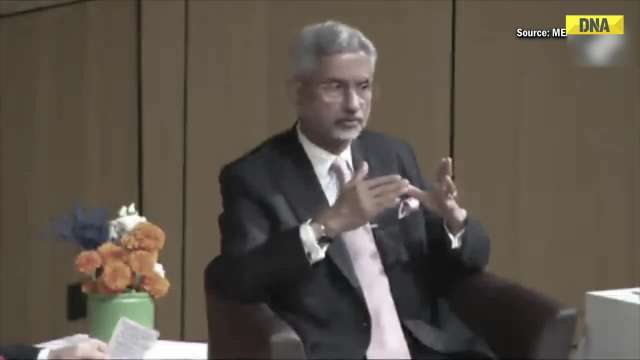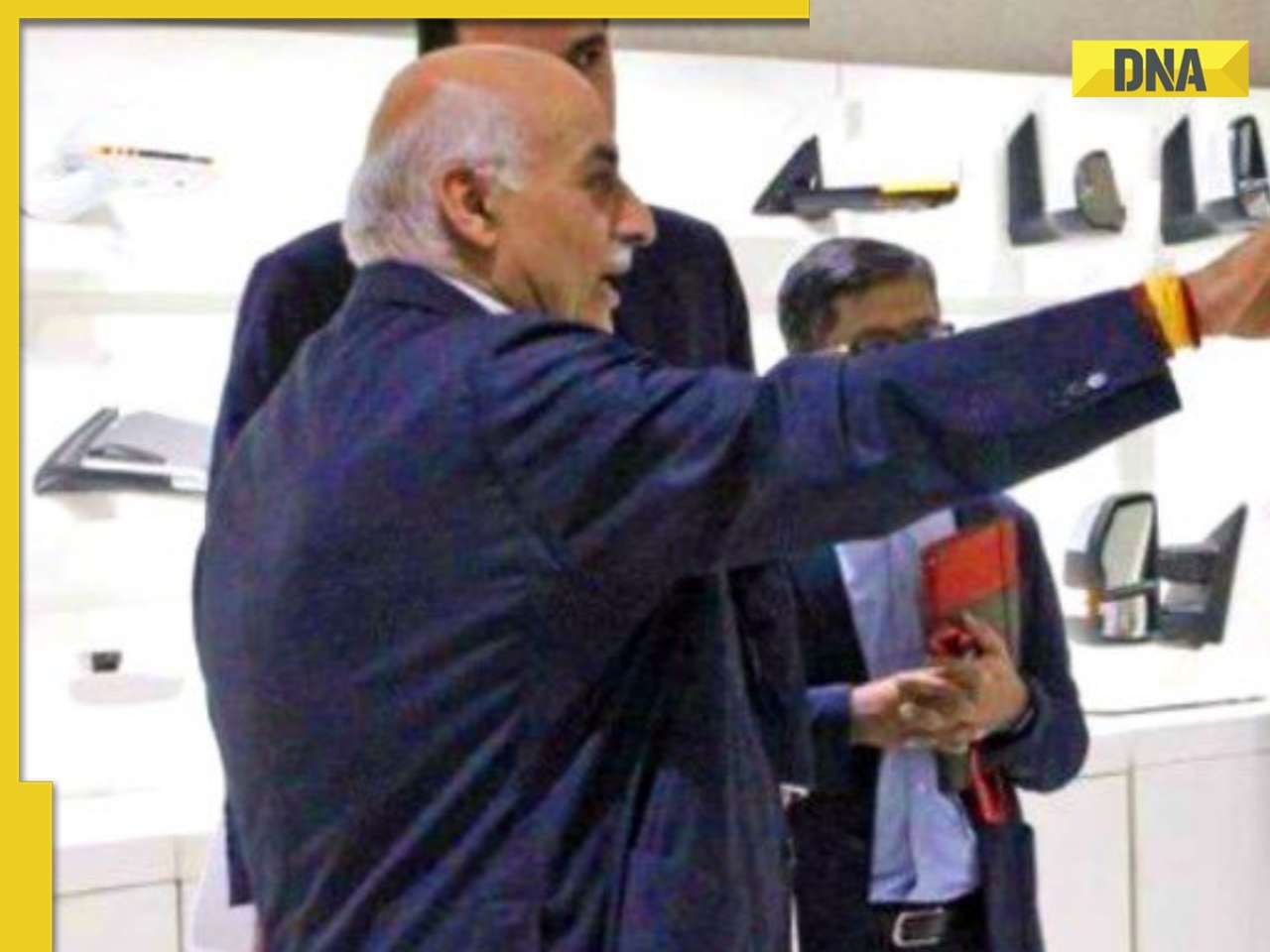The government and the conservative opposition have both promised to cut emissions by 5% by 2020, but the opposition is opposed to carbon trading, which it calls a big new tax.
Australian prime minister, Julia Gillard, reaffirmed on Friday a delay in introducing a price for carbon pollution, angering environmentalists, scientists and businessmen ahead of her bid to secure re-election.
The delay, said to be until 2012 at least, is certain to test the ruling Labour party's ties with the small Greens party ahead of the August 21election.
The Greens are set to be kingmakers in the next parliament, controlling the balance of power in the senate's upper house.
Voters deserted Labour in favour of the Greens in April when the government first postponed a carbon trading scheme after twice failing to win passage of its climate policy in parliament.
"This is a complete failure of leadership by the prime minister," said Greens senator, Christine Milne. Some academics were even blunter in thier comments.
"The majority of Australians will see this for what it is, a feeble attempt to defuse climate change as an election issue," said Richard Denniss, executive director of the Australia Institute.
Opinion polls show Gillard has turned Labour's fortunes around and the latest trend shows she is on track to win the election with an increased majority.
The government and the conservative opposition have both promised to cut emissions by 5% by 2020, but the opposition is opposed to carbon trading, which it calls a big new tax.
Big business and mining companies also oppose carbon trading, saying it would increase their costs and force projects offshore.
Gillard said a trading scheme was essential to reduce carbon emissions, but no decision would be made until a new citizen's assembly canvassed community views for the next 12 months.
"Australians have real concerns about making changes that are this big, and they need more information," the PM said. "They are concerned about the impact on jobs, on the prices of goods and services that they rely on, especially electricity."
Voters want quick action on climate change, according to opinion polls. Business is increasingly concerned over a lack of a carbon policy, with power suppliers warning of stalled investment and rising power prices.
Economics professor Warwick McKibbin, a board member of the Reserve Bank of Australia, said Labour's climate policy was ‘extremely disappointing’ and delayed action purely for ‘political advantage’.
The lack of a price on carbon would cost the economy and consumers an extra $2 billion ($1.75 billion) by 2020 due to investment in less energy efficient coal-fired power plants, the Climate Institute estimates.
"Business has been on board with carbon pricing for some time. This proposal could simply mean more procrastination," said Frank Jotzo, deputy director of the Australian National University's Climate Change Institute.
The global head of Baker & McKenzie's climate practice also questioned Labour's climate policy.
To reassure big business, Gillard said carbon trade policy would remain the base for generous compensation for the biggest polluters. She ruled out lifting the threshold for compensation.
Australia, the world's largest coal exporter, accounts for about 1.5% of global emissions, but is one of the highest per capita emitters due to a reliance on burning coal to generate about 80% of domestic electricity.
Gillard said a re-elected Labour will demand new coal-fired power stations to be equipped to capture and store carbon.
She also announced an extra A$1 billion over 10 years to help promote renewable energy projects. Australia has laws to ensure 20% of power comes from renewable energy by 2020.
"We have not abandoned our commitment to take action on climate change," Gillard said. "We will harness the power of natural resources - wind, sun, geothermal energy and bio-fuels.”
![submenu-img]() How Kareena Kapoor, Hansal Mehta's The Buckingham Murders breaks moulds to emerge as a rare post-pandemic hit thriller
How Kareena Kapoor, Hansal Mehta's The Buckingham Murders breaks moulds to emerge as a rare post-pandemic hit thriller![submenu-img]() Bhool Bhulaiyaa 3 director Anees Bazmee on box office clash with Singham Again: 'Why should I talk to Ajay Devgn?'
Bhool Bhulaiyaa 3 director Anees Bazmee on box office clash with Singham Again: 'Why should I talk to Ajay Devgn?'![submenu-img]() Meet man, son of auto driver, resigned after being insulted as police constable, then cracked UPSC exam to become...
Meet man, son of auto driver, resigned after being insulted as police constable, then cracked UPSC exam to become...![submenu-img]() Congress releases manifesto for J-K polls, promises Rs 4000 to...
Congress releases manifesto for J-K polls, promises Rs 4000 to...![submenu-img]() Arjun Tendulkar shines with 9-wicket haul in dominant victory for...
Arjun Tendulkar shines with 9-wicket haul in dominant victory for...![submenu-img]() Asian Champions Trophy 2024 Final: फाइनल में टीम इंडिया की ऐतिहासिक जीत, 5वीं बार जीता चैंपियंस ट्रॉफी का खिताब
Asian Champions Trophy 2024 Final: फाइनल में टीम इंडिया की ऐतिहासिक जीत, 5वीं बार जीता चैंपियंस ट्रॉफी का खिताब![submenu-img]() Emergency को लेकर मुश्किल में फंसीं Kangana Ranaut, चंडीगढ़ कोर्ट ने तलब की मंडी सांसद, जानें पूरा मामला
Emergency को लेकर मुश्किल में फंसीं Kangana Ranaut, चंडीगढ़ कोर्ट ने तलब की मंडी सांसद, जानें पूरा मामला![submenu-img]() 'भगवान गणेश को जेल में बंद करने वाले...' PM Modi ने CJI के घर जाने पर आलोचना कर रही Congress को क्यों बोला ऐसा?
'भगवान गणेश को जेल में बंद करने वाले...' PM Modi ने CJI के घर जाने पर आलोचना कर रही Congress को क्यों बोला ऐसा?![submenu-img]() IND vs BAN: बांग्लादेश टेस्ट सीरीज में इन 5 रिकॉर्ड पर होगी Virat Kohli की नजरे, सचिन को भी पछाड़ने का मौका
IND vs BAN: बांग्लादेश टेस्ट सीरीज में इन 5 रिकॉर्ड पर होगी Virat Kohli की नजरे, सचिन को भी पछाड़ने का मौका![submenu-img]() 'मेरी बात सुनें, वरना कोर्ट से बाहर निकाल दूंगा', कोलकाता मामले में वकील पर क्यों भड़के CJI चंद्रचूड़?
'मेरी बात सुनें, वरना कोर्ट से बाहर निकाल दूंगा', कोलकाता मामले में वकील पर क्यों भड़के CJI चंद्रचूड़?![submenu-img]() Ford to return to India after 2 years with reopening of....
Ford to return to India after 2 years with reopening of....![submenu-img]() Maruti Suzuki launches new Swift CNG, check price, mileage, other features
Maruti Suzuki launches new Swift CNG, check price, mileage, other features![submenu-img]() ‘30 LPA, 3BHK, no in-laws’: Woman earning Rs 1.32 lakh salary lists demands for future husband, netizens say...
‘30 LPA, 3BHK, no in-laws’: Woman earning Rs 1.32 lakh salary lists demands for future husband, netizens say...![submenu-img]() In a big EV push, Centre launches Rs 10900 crore PM E-Drive scheme to replace…
In a big EV push, Centre launches Rs 10900 crore PM E-Drive scheme to replace…![submenu-img]() World’s longest car has helipad, swimming pool, mini-golf course, can seat over…; it cost…
World’s longest car has helipad, swimming pool, mini-golf course, can seat over…; it cost…![submenu-img]() Meet man, son of auto driver, resigned after being insulted as police constable, then cracked UPSC exam to become...
Meet man, son of auto driver, resigned after being insulted as police constable, then cracked UPSC exam to become...![submenu-img]() Meet woman who cracked UPSC at 22 without coaching while looking after ailing father, but then lost parents, now she...
Meet woman who cracked UPSC at 22 without coaching while looking after ailing father, but then lost parents, now she...![submenu-img]() Meet man, IIT graduate, who left Rs 1 crore salary job for UPSC, secured AIR 1 in 1st attempt, posted in...
Meet man, IIT graduate, who left Rs 1 crore salary job for UPSC, secured AIR 1 in 1st attempt, posted in...![submenu-img]() How to Crack NEET 2025 in First Attempt?
How to Crack NEET 2025 in First Attempt?![submenu-img]() SBI SCO Recruitment 2024 Notification: Sarkari Naukri for 1497 posts, check eligibility and selection process
SBI SCO Recruitment 2024 Notification: Sarkari Naukri for 1497 posts, check eligibility and selection process![submenu-img]() Kolkata Doctor Case: Protesting Doctors React After CBI Arrests Sandip Ghosh And Abhijit Mondal
Kolkata Doctor Case: Protesting Doctors React After CBI Arrests Sandip Ghosh And Abhijit Mondal![submenu-img]() Nitin Gadkari: Union Minister Nitin Gadkari Reveals He Was Offered Support For PM Post But Declined
Nitin Gadkari: Union Minister Nitin Gadkari Reveals He Was Offered Support For PM Post But Declined![submenu-img]() Kolkata Doctor Case: Junior Doctors Protest For 5th Night As Talks With CM Mamata Fail Again
Kolkata Doctor Case: Junior Doctors Protest For 5th Night As Talks With CM Mamata Fail Again![submenu-img]() Muslim Sculptor Crafts Tiny Ganesh Idols On Pencil Graphite #shorts #viralvideo #ganesh
Muslim Sculptor Crafts Tiny Ganesh Idols On Pencil Graphite #shorts #viralvideo #ganesh![submenu-img]() Jaishankar: EAM Dr. S. Jaishankar On India-China Relations & Disengagement Problems | Ladakh
Jaishankar: EAM Dr. S. Jaishankar On India-China Relations & Disengagement Problems | Ladakh![submenu-img]() Meet man, who turned Bajaj Housing Finance into Rs 137406 crore company, not from IIT, IIM, he is...
Meet man, who turned Bajaj Housing Finance into Rs 137406 crore company, not from IIT, IIM, he is...![submenu-img]() Meet woman who failed to secure a job, then built Rs 800 crore company by selling waste from home, her business is…
Meet woman who failed to secure a job, then built Rs 800 crore company by selling waste from home, her business is…![submenu-img]() Meet Mukesh Ambani's brother, 'third son' of Dhirubhai Ambani, who left his business to join Reliance, he is...
Meet Mukesh Ambani's brother, 'third son' of Dhirubhai Ambani, who left his business to join Reliance, he is...![submenu-img]() Meet man, an Indian, who is set to invest Rs 1258245000 in Israeli company to...
Meet man, an Indian, who is set to invest Rs 1258245000 in Israeli company to...![submenu-img]() This Shark Tank judge still uses Zomato coupons, says, 'I get excited about Rs 40…’
This Shark Tank judge still uses Zomato coupons, says, 'I get excited about Rs 40…’![submenu-img]() Meet 7 biggest wealth gainers of 2024, Elon Musk, Mukesh Ambani, Ratan Tata, not in the list
Meet 7 biggest wealth gainers of 2024, Elon Musk, Mukesh Ambani, Ratan Tata, not in the list![submenu-img]() Meet Lucknow's richest man with net worth of Rs 12580 crore, he is...
Meet Lucknow's richest man with net worth of Rs 12580 crore, he is...![submenu-img]() Siddharth, Aditi Rao Hydari share first photos from their traditional south Indian wedding: 'Mrs and Mr Adu-Siddhu'
Siddharth, Aditi Rao Hydari share first photos from their traditional south Indian wedding: 'Mrs and Mr Adu-Siddhu'![submenu-img]() In pics: Priyanka Chopra stuns in bikini as she takes 'perfect pause' for beach vacation with Nick Jonas, Malti Marie
In pics: Priyanka Chopra stuns in bikini as she takes 'perfect pause' for beach vacation with Nick Jonas, Malti Marie![submenu-img]() From John F Kennedy to Donald Trump: List of US politicians who were assassinated or targeted
From John F Kennedy to Donald Trump: List of US politicians who were assassinated or targeted![submenu-img]() Congress releases manifesto for J-K polls, promises Rs 4000 to...
Congress releases manifesto for J-K polls, promises Rs 4000 to...![submenu-img]() Jammu Kashmir Assembly Election 2024: Multi-tier security arrangements put up in J-K ahead of 1st phase polls
Jammu Kashmir Assembly Election 2024: Multi-tier security arrangements put up in J-K ahead of 1st phase polls![submenu-img]() Haryana Assembly Election 2024: BJP's Sirsa candidate withdraws nomination party may support...
Haryana Assembly Election 2024: BJP's Sirsa candidate withdraws nomination party may support...![submenu-img]() Sebi withdraws statement on 'unprofessional work culture' amid employee unrest, commits to...
Sebi withdraws statement on 'unprofessional work culture' amid employee unrest, commits to...![submenu-img]() Kolkata doctor rape, murder case: Protesting doctors accept Mamata Banerjee's ‘final’ talks invite on these 3 conditions
Kolkata doctor rape, murder case: Protesting doctors accept Mamata Banerjee's ‘final’ talks invite on these 3 conditions













































)
)
)
)
)
)
)
)
)
)
)
)
)
)





)
)
)
)
)
)